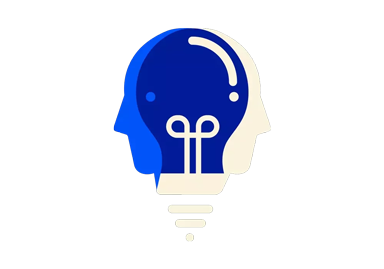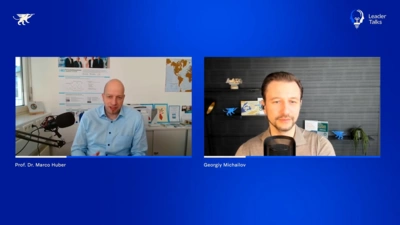We’re in the year 2030. The idea of doing your own homework has long been a thing of the past. And jobs such as that of a bank adviser have long since disappeared from our everyday lives. Everything is now controlled digitally, by artificial intelligence or robots. Human interaction is increasingly rare. The human being is heading for obsolescence. A scenario that sounds like science fiction. And yet it is at least partially already reality.
Nowadays, AI software such as Chat GPT can write whole dissertations without difficulty, or pass a Master’s degree. Systems are becoming better and better – and it’s happening fast. So we have to ask ourselves: If artificial intelligence is getting better and better, faster and faster, will AI soon be doing our jobs? Is there still a need for human beings? And if there is, for what?
For Prof. Marco Huber, it is clear: AI is here to stay. And it will intervene in our (professional) day-to-day lives more and more. This also means that AI systems will change our lives dramatically. What does that mean for us now? Is the consequence really going to be that humankind now has an expiry date? Huber’s research is practical, and therefore leaves room for hope.
For him it is clear that in future it will not be a case of whether we use AI models, but how we use them. One way or another, AI is going to turn our lives upside down. And precisely this is what the AI expert talks about in this current LeaderTalk with Georgiy Michailov, Managing Partner at Struktur Management Partner. He points out the opportunities and potentials for the field that at first glance appears to be most threatened by AI: namely education. But Huber not only goes into the advantages of AI. He also reveals where problems can arise with programs like Chat GPT. And he ventures to give an outlook on where the AI journey may take us in the next few years – and where it is unlikely to take us.
*Video only in German





